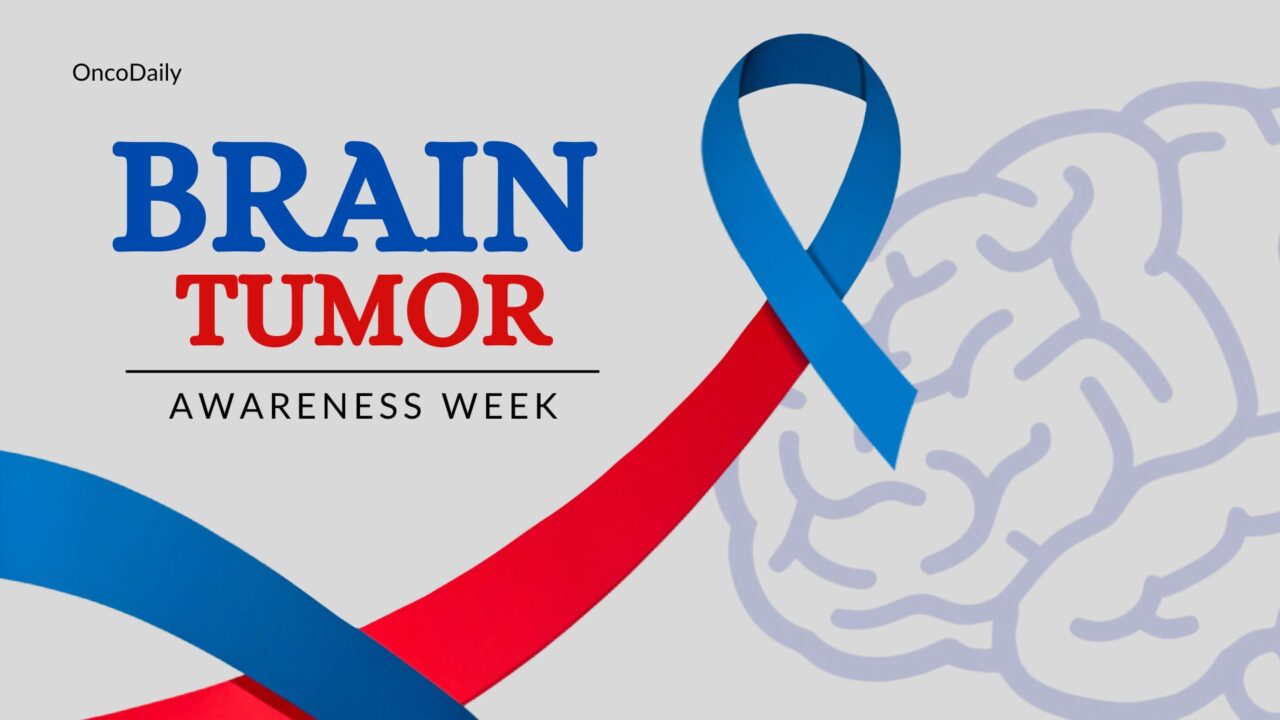International Brain Tumor Awareness Week was observed from October 26th to November 2nd, 2024.
International Brain Tumour Awareness Week is an initiative that highlighted the importance of understanding brain tumours and their impact on individuals and families. Organizations around the world came together to host webinars, educational programs, and various activities aimed at raising awareness.
This year’s theme emphasized the unique challenges faced by those diagnosed with brain tumours, the necessity for tailored responses, and the urgent need for increased research efforts. It served as an opportunity for the brain tumour community to unite, share knowledge, and advocate for better support and resources. Engaging in these activities fostered a sense of community and hope for those affected.

Healthcare professionals, organisations and survivors shared their insights on social media:
EANO:
“EANO proudly supports the 2024 International Brain Tumour Awareness Week! Let’s raise awareness, support patients, and promote advancements in research in NeuroOncology. Together, we can make a difference!”
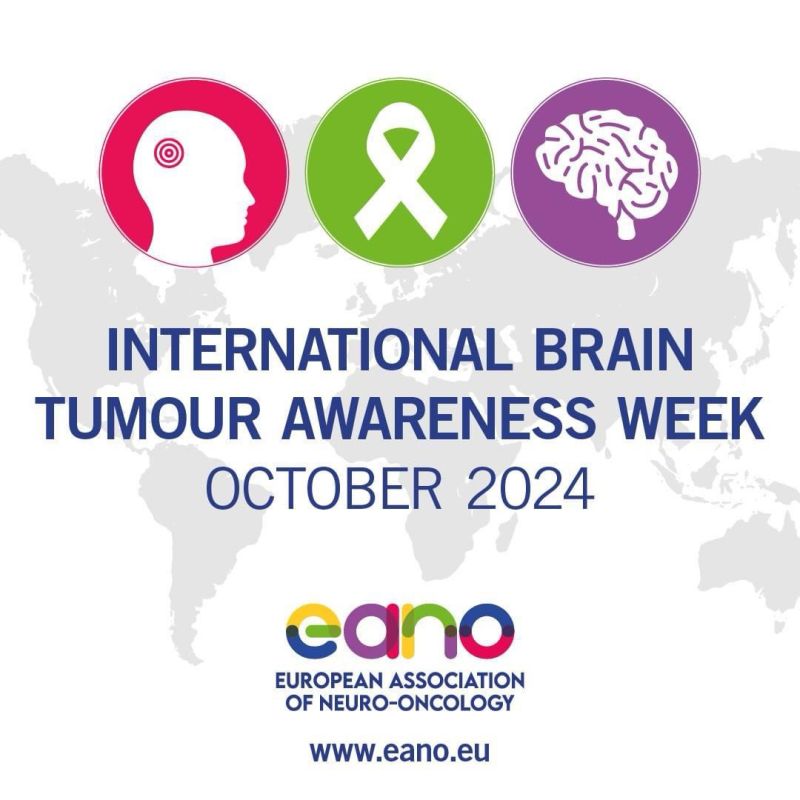
“First patient takes part in new clinical trial for patients with recurrent glioblastoma
To mark International Brain Tumour Awareness Week, University College London Hospitals NHS Foundation Trust and The National Brain Appeal are announcing a new clinical trial for patients with recurrent glioblastoma brain cancer led by consultant medical oncologist, Dr Paul Mulholland.
His patient, Paul (pictured), who was diagnosed with glioblastoma in December 2023, is the first patient to be recruited. Scans revealed a 50% reduction in his tumour at the end of treatment. The trial involves weekly injections of the drug delivering small amounts of radioactivity over 4 to 6 weeks, using a small device implanted under the scalp that directly targets the tumour.
This innovative treatment is potent over short distances, reaching cancer cells it comes into contact with. The radioactivity should damage and hopefully destroy tumour cells while sparing healthy tissue.
Sponsored by Ariceum Therapeutics, this trial could bring new hope to glioblastoma patients.
Dr Mulholland said: ‘Potentially this is a very powerful approach and I’m already extremely pleased with the results from the first patient.’
Reflecting on his participation in the trial, Paul said: ‘This trial was a lifeline as the likelihood according to the data on survival was a year or less for me and even if it does not directly benefit me, I have the hope that it will feed into the knowledge bank for glioblastoma and other brain cancers and help other sufferers in the future.’
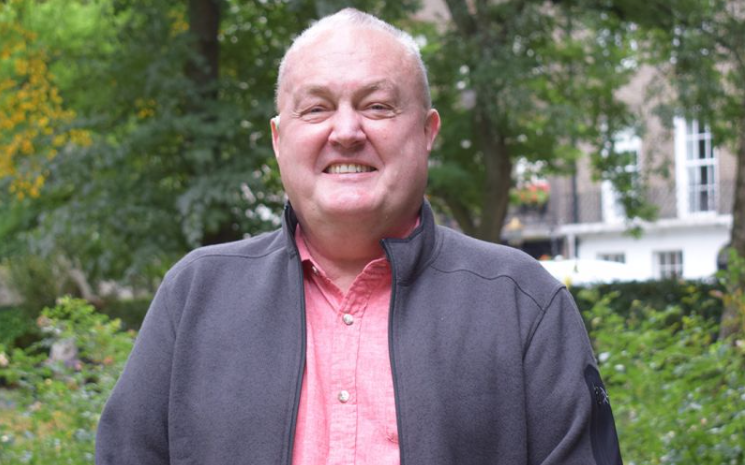
“28th October – 2nd November is International Brain Tumour Awareness Week – this one is personal.
On 26th May 2023, I received life altering news, a diagnosis of a rare brain tumour. In that moment, my world shifted. Looking back, I can see how I hadn’t been listening to my body. The signs were there, but I dismissed them – headaches as dehydration, dizziness as too much caffeine, neck pain as poor desk posture or the result of a few horse riding accidents. I never thought something this serious could happen to me, but illness doesn’t discriminate.
On 29th June 2023, I underwent a posterior fossa craniotomy to remove the tumour pressing on my brain stem and right cerebellum. The next six months were the toughest journey I’ve ever faced. Brain injury recovery is complex and really varies person to person. Once home the reality set in and was particularly challenging; my injury wasn’t visible to most, covered by a scarf if I was able to leave the house so grappling with how others perceived me added another layer of difficulty.
My speech, movement, balance and physical strength was impacted which also affected my self confidence. My mental health struggled, but I leaned on determination, resilience, and (admittedly) a bit of stubbornness to keep going.
A year on, I’m proud of my strength and recovery, and deeply grateful for the unwavering support of family and friends, who helped make the impossible seem possible.
If you’ve read this far, thank you. We are all familiar with the iceberg analogy so this is a reminder that we never really know what others are going through and what battle they may have fought that day. Stay kind and try not to make judgements of others. Trust your gut and advocate for your health.
If you’re able, consider supporting brain tumour awareness in New Zealand through nogoingback.co.nz Donations fund “brain boxes” that provide care essentials to those affected by brain tumours.”
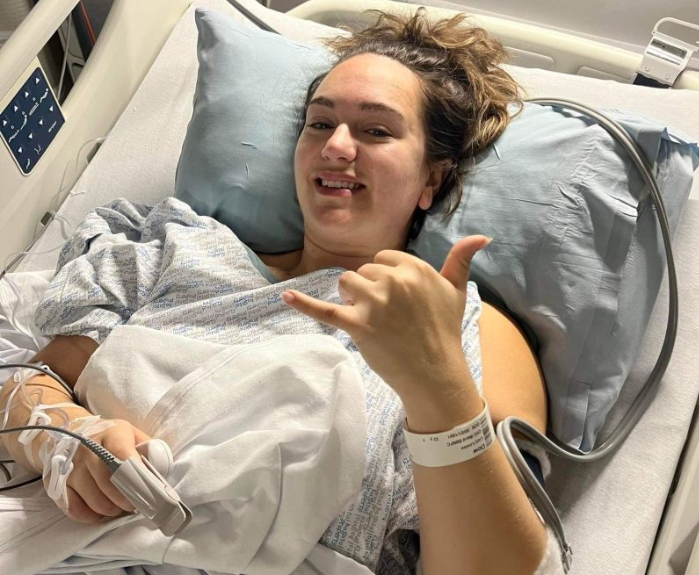
“This week is International Brain Tumour Awareness Week, so I would like to take a brief moment to share what it means to me.
I lost my older sister Mel to a brain tumour when she was just 39, which was absolutely devastating. The whole experience was, and still is, shocking and surreal. It is a very helpless, desperate feeling seeing someone you love being diagnosed with a terminal illness, and I find myself repeatedly questioning why this awful thing had to happen. It’s impossible to make sense of, so I feel that all I can do is to shine a light on this disease and try to be a positive force whenever I can.
In 2022, I was invited to visit a Brain Tumour Research facility following a fundraising effort, where I was able to place a plaque for my sister on the ‘Wall of Hope’, and learn more about what they do. A single day’s research costs nearly £3,000 to fund, which equates to over £1 million per year. This really highlights how vital every single penny of fundraising is to the cause.
According to Brain Tumour Research: ‘Brain tumours kill more children and adults under the age of 40 than any other cancer yet just 1% of the national spend on cancer research has been allocated to this devastating disease since records began in 2002.’
Symptoms to look out for include: frequent or severe headaches; persistent nausea/vomiting; vision problems; seizures; weakness/numbness in limbs or one side of the face/body; speech difficulties; or cognitive changes such as confusion, memory loss, and difficulty concentrating.”
“Brain Tumor Awareness Week: My Unexpected Journey with Meningioma
A couple of years ago, I went for what I thought would be just another routine scan of my central nervous system, a check-up for my spinal stenosis. But instead of routine results, I received a life-changing diagnosis: a brain tumor—a meningioma. It struck me like a ton of bricks. I went in focused on my spine, only to find out I was facing an entirely new battle, one I never saw coming. It was a moment that turned everything upside down, forcing me to confront something far more daunting than I ever anticipated.
For those who may not be familiar, meningiomas are tumors that grow on the membranes covering the brain and spinal cord. They are often slow-growing and can go unnoticed for years. In fact, many people, like myself, discover them by chance. While they’re typically benign, the reality of having a brain tumor is overwhelming. It’s not just about the physical presence of the tumor; it’s about the emotional weight that comes with it—the fear, the uncertainty, the constant questions about what comes next.
Since that diagnosis, my tumor has continued to grow, and now, I’m facing the very real prospect of surgery. This isn’t just a physical challenge; it’s a mental one, too. Surgery on your brain is terrifying, no matter how strong you are. And the truth is, I don’t think I’ll ever be fully prepared for it. This isn’t something you can brace for emotionally—it’s the kind of news that shifts everything, whether you’re ready or not.
What’s important to highlight during Brain Tumor Awareness Week is just how crucial early detection can be. My meningioma was found by accident, but that accident has given me a fighting chance. It’s allowed doctors to monitor the tumor’s growth and determine the best course of action. But not everyone is that fortunate. Awareness is key to ensuring people know the signs, understand the risks, and seek the care they need before it’s too late.
Being a person with a disability already means I’ve faced my share of battles, but this diagnosis has been a reminder of just how unpredictable life can be. It’s a fight I never imagined having, and while I don’t have all the answers, I know that raising awareness about brain tumors is essential—not just for me, but for everyone who may be silently facing the same fear.
As I prepare for surgery, I realise we need more than awareness—we need action, research, and support. Brain Tumor Awareness Week isn’t just about stats; it’s about real lives, real stories, and real fears.
Image description: Claire, a little person, stands in a hallway, taking a selfie in front of a round mirror. She’s wearing beige jeans, a black top, a black hat, and glasses, holding her phone up for the shot.”
“I’ve just finished my shift from a job I never applied for, haven’t had any training for and if I’m honest, it’s not even one I wanted. I’ve not eaten, it’s been physically and mentally demanding with some tears, and our conversations are absolute gobbledegook, but luckily I love my boss! Today I was a carer as I gave my amazing step-Dad a well earnt break to have a few pints with his mates on the match.
It’s International Brain Tumour Awareness Week and in June my wonderful Mum was diagnosed with a terminal Glioblastoma – a brain tumour to you and me. She had no treatment options available. But she’s defying the 3 months they gave her as we head into month 5! She’s small but fierce…
Did you know that treatment for brain tumours hasn’t changed or advanced for over 20 years?
Also, many people don’t know the signs of a brain tumour to catch it early enough. Would you know the symptoms?
We need more awareness and more research to help advance treatment for this awful disease, and more support for those who are thrust into a caring role as they navigate a new world of constantly second guessing themselves.
And so now I’m off to my next job to pick up my young son from his Dad’s, but being a Mum to my boy is a job I absolutely DID want! Well, I learnt from the best…”
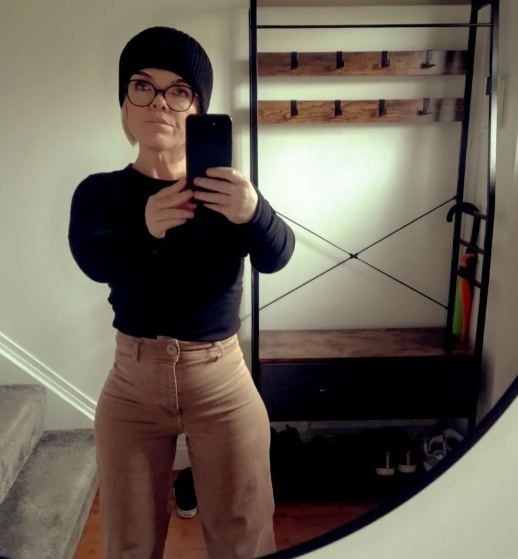
“This graph speaks volumes. Despite significant advancements in medicine, the survival rates for brain cancer have remained alarmingly stagnant for over 30 years. For those with glioblastoma, like my Mum, there’s only a 5% chance of survival.
Today, during International Brain Tumour Awareness Week, I’m using my small platform to raise awareness about the disease. It might not affect many people, but it’s devastating when it does. Only 1 in 4 people with GBM live more than 12 months.
Next time you donate to a cancer charity give a thought to those families affected by brain cancer, many of them the parents of young children with the disease. We’ve seen the huge difference funding can make with other cancers for better survival rates and better treatments.
The complexity of the brain and the resilience of these tumors make effective treatments incredibly challenging. So please consider helping support those affected by brain cancer and push for the breakthroughs we desperately need.
Thank you. Some ways to donate are:
Cure Brain Cancer Foundation (Australia)
Brain Tumour Foundation of Canada
Brain Tumour Research (UK)”
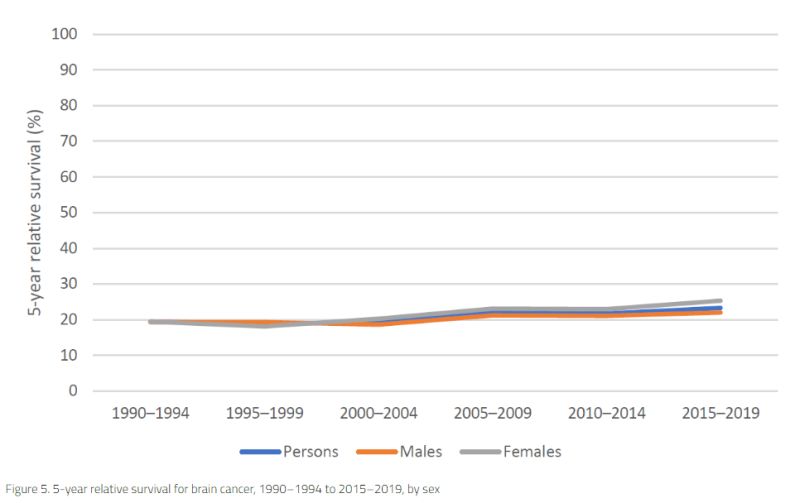
“Are you talking about International Brain Tumour Awareness Week 2024? That’s all you need to do. Talk about it. It’s an annual campaign to raise awareness of the challenges and difficulties of a brain tumour diagnosis.
Don’t know what to talk about? Use my story. It’s not a secret and I want you to share it. I was diagnosed with a brain tumour 5 years ago and thanks to an awful lot of good luck, am here to tell the tale. It’s not without its challenges mind you. Take a look at one of my articles if you want to know more.
Or alternatively you can use the plentiful resources from the marvellous team at Brain Tumour Research,”
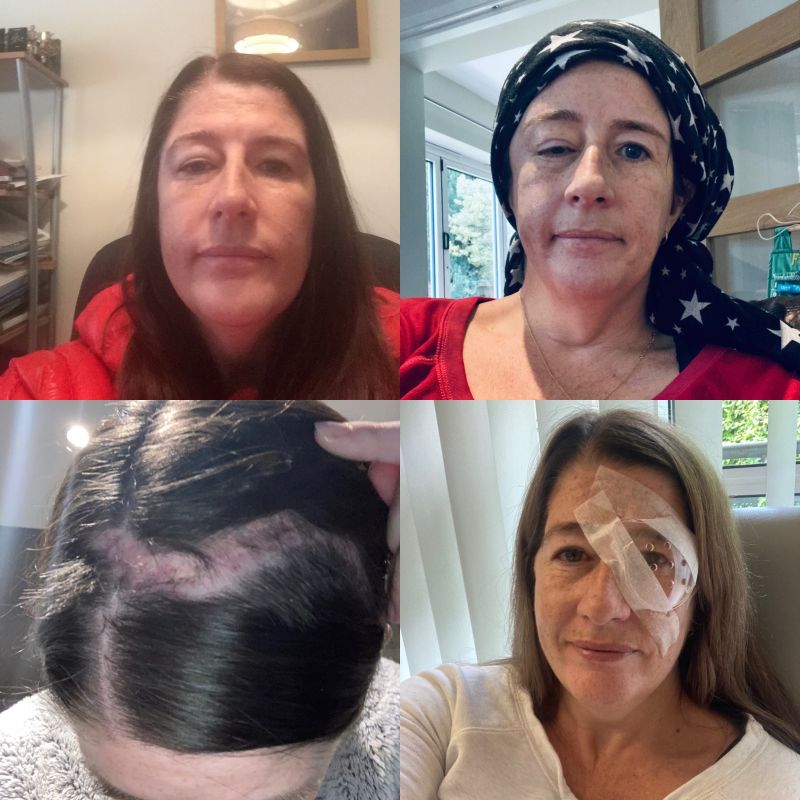
“My brother died of a Brain Tumour aged 45.
It’s Brain Tumour Awareness Week and I want support awareness of a cancer than kills more children and adults under 40 than any other cancer. And it’s not even close.
Despite this, brain tumours get less than 1% of government funding on cancer research.
Finding a cure in my lifetime is unlikely. Finding more effective and humane treatment to extend life, whilst keeping a level of quality, should not be a pipe dream and should be funded equally.”
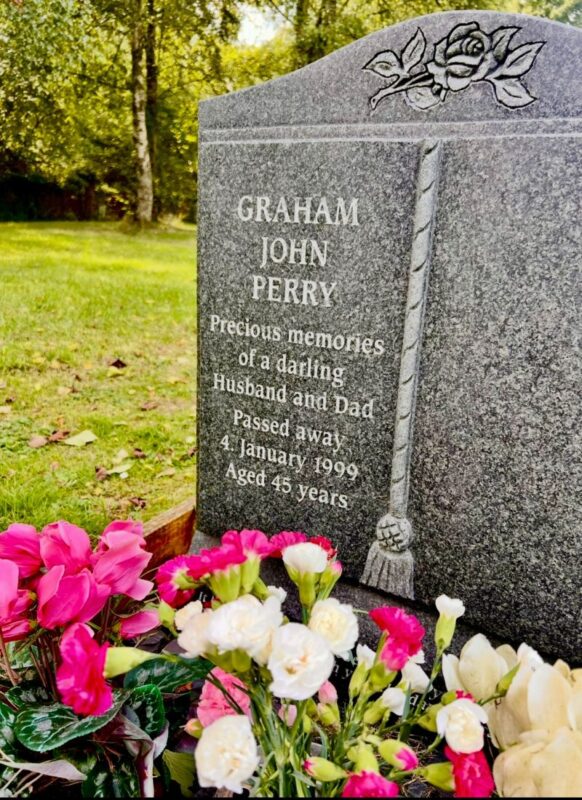
“To mark the Brain Tumour Awareness Week…
I’d like to share the historic step forward made in radio & neurosurgery in my country, Georgia.
Just over a month ago, the first-ever Gamma Knife radiosurgery was performed in Aversi Clinic.
The Gamma Knife technology is a golden standard treatment.
Elekta, whose Gamma Knife Esprit technology has revolutionised the way we approach complex brain conditions, allows doctors to deliver life-changing care.
It allows to perform non-invasive brain surgery with unprecedented accuracy, offering a new level of precision and effectiveness in treating neurological conditions.
Now, Aversi Clinic offers patients this cutting-edge treatment option with unparalleled precision, improved patient outcomes and reduced recovery times.
This achievement would not have been possible without the dedication and expertise of the entire radiosurgery team at Aversi Clinic – I am SO happy and proud to have been a part of this team over the summer, as a biomedical engineering student.
Elekta and their training teams have given me, as a biomedical engineer, the incredible opportunity to gain insights into a technology I once could only dream of.
With over 1 million individuals living with a primary brain tumour diagnosis [abta.org] – Brain Tumour Awareness Week marks a time of hope and progress;
It is a call to action for us to join together to support research and healthcare workers, raise awareness, and bring hope to everyone affected by brain tumours.”
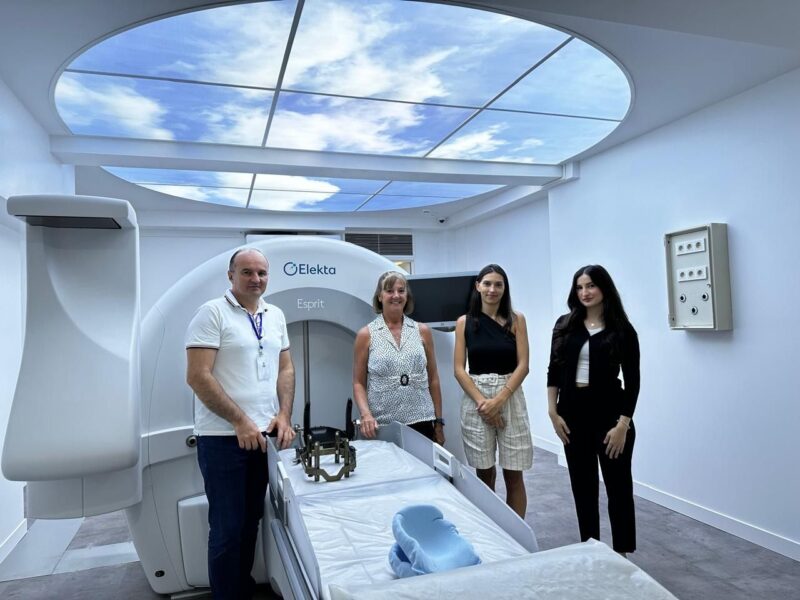
“This Halloween is mine and my families scariest yet…
Because we face the ultimate monster. A brain tumour. Fitting that Halloween falls in international Brain Tumour awareness week.
It makes every day like Halloween. It takes lives away. With little funding research, outdated treatments and everything in between, it gets a lot.
It’s easy to feel powerless.
But you don’t have to.
– Follow and support charities like The Brain Tumour Charity, Brain Tumour Research and brainstrust.
– Spend a minute to fill in this form that’ll write to your MP, asking for a national brain tumour strategy
– Know the signs and symptoms. Headaches, vision loss, hormonal changes, But this can be for anything – know your normal, and don’t ignore when it changes.
Get your regular eye tests. £20 eye tests are a small price to pay for your life.
– Be aware that just because it doesn’t affect you know, it doesn’t mean it won’t in the future. These things don’t discriminate.”
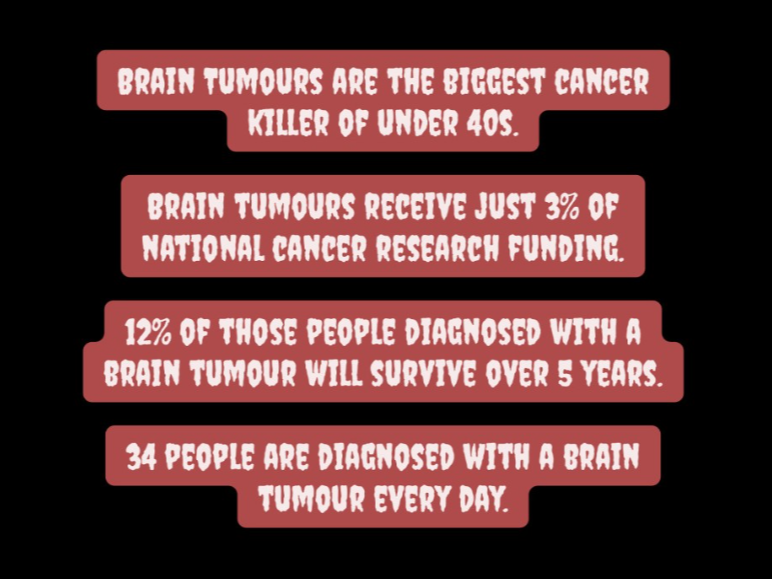
“International Brain Tumour Awareness Week 2024 Day 3
Eyes and brain tumours, people look at me and they just don’t get it !! I see their cogs spinning internally. They are nodding at me saying that must be interesting but are internally wondering huh! There is a big disconnect with the general public and they don’t understand the role opticians/optometrists have in both the detection, referral, treating and visual rehabilitation of patients with brain tumours. So let me please help…
About 1/3 of patients, children and adults, will experience eye problems at some stage during their brain tumour journey. This can be at the very beginning of their journey prompting a visit to an optician/optometrist. Secondly It can also be secondary to their treatment (no treatment due to its size or location, surgical treatment, radio/chemo treatment). Thirdly it may be as a side effect of medication or other medical conditions they may acquire, due to the brain tumour, such as epilepsy.
The back of the eye is the front of the brain, so there is tissue at the back of the eye which is the same tissue as the brain. So when we look inside a person’s eyes we may see signs that can be associated with a brain tumour. A person may also describe symptoms or have other aspects of their vision affected by the brain tumour that we can pick up.
You may not be aware that many patients diagnosis of a brain tumour started with a visit to their optician/optometrist who referred them to ED for further assessment. Or you may not know that opticians/optometrists can refer people directly to the hospital if they saw signs that needed further investigation
There are many vision problems that can occur such as blurry vision, double vision, a turn in the eye, gait/balance/3D issues which are often some of the more common signs we get to see. The list is longer but these are the main ones.
Now please don’t be worried if you have any of the above conditions but please get them checked out with your local optician/optometrist as soon as possible. More than likely they are not a brain tumour
Vision Rehabilitation may also be required through the help of Orthoptists in a hospital setting, or through Dispensing Opticians with special glasses and or optical devices.
So hopefully you now know a little than before about why opticians/optometrists are involved in the early detection of brain tumours.
If you have any stories related to this I would be very grateful if you would like to share them in the comments section below, to hear from other people’s friends, family members etc. on they had their brain tumour detected.”
“Spotlight on: Dr Hannah K Jackson.
We’re back with Spotlight On! This month, as part of International Brain Tumour Awareness Week, we interviewed Hannah Kate Jackson postdoctoral research fellow at the University of Nottingham. Hannah discusses balancing the many aspects of research, the importance of surrounding yourself with a supportive network and her hopes and dreams for her future in academia.
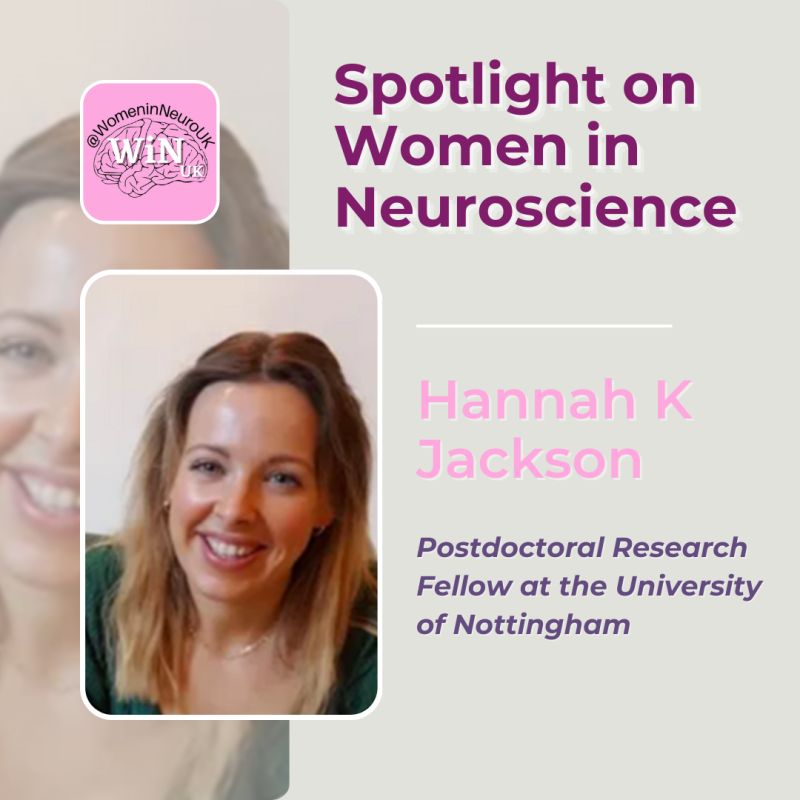
More posts featuring Brain Tumor on oncodaily.com


